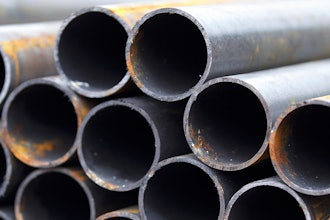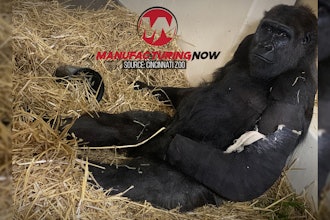BEIJING (AP) -- A court on Monday refused to accept a lawsuit filed against a Chinese dairy by dozens of families who said their children were sickened or killed by tainted milk, lawyers involved in the case said.
The 63 defendants in the first-known group lawsuit stemming from the scandal, including the parents of two children who died, were seeking nearly 14 million yuan ($2 million) in compensation from state-owned Sanlu Group Co., Beijing-based lawyer Xu Zhiyong said.
The dairy based in the northern Chinese city of Shijiazhuang was at the center of China's worst food safety crisis in years, in which six babies are believed to have died and nearly 300,000 became sick with urinary problems after drinking infant formula tainted with the industrial chemical melamine.
Three of six defense lawyers presented the suit to the Hebei Supreme Court's registry office on Monday but were told it could not be accepted because government departments were still investigating.
"We think it was their excuse for not accepting the case. We will continue to push the case and give them pressure," said activist lawyer Li Fangping, who helped organize the case.
The court in Hebei, the province where Sanlu is based, took the documents, lawyers said.
"We presented our documents and we expressed our concern. We will keep contacting them to see what's the progress," attorney Lan Zhixue said.
China's Health Ministry acknowledged last week that six babies likely died, twice the previous figure, and 294,000 babies suffered urinary problems from drinking contaminated infant formula, a six-fold increase from its last tally in September.
The government has said that Sanlu knew as early as last year that its products were tainted with melamine and that company and local officials first tried to cover it up.
Like a number of major dairies, Sanlu was said to have excellent quality controls that allowed it to enjoy a government-granted inspection-exempt status.
So far there has been no word on compensation for the sick babies, apart from an offer of free medical care. At least a dozen individual cases have been filed against Sanlu but are caught in a legal limbo, while lawyers who have volunteered to help families have been pressured to drop their work.
Courts often turn down group suits, preferring to deal one-by-one with cases to appear more productive and avoid running afoul of Communist Party officials, who ultimately control the judiciary.
Hearing a group case on tainted milk would also bring sensitive issues of culpability out in court. The central government said it only learned of the scandal Sept. 8 -- it does not say how -- even though inspection, health and other government departments in Hebei province and Beijing knew earlier.
The lawyers were told by the Shijiazhuang prosecutor's office that criminal cases involving Sanlu milk were still being discussed and have not begun to be prosecuted.
The suit lays out eight compensation packages, depending on the severity of illness, and seeks a total of 6.82 million yuan ($991,000) for medical fees, cost of food and transportation fees for the group, as well as 6.91 million yuan ($1 million) for psychological damage.
Xu said there were two cases of deaths among the claimants, one in Henan province and another in Gansu province.
The illnesses of so many children highlighted the widespread practice of adding melamine -- often used in manufacturing plastics -- to watered-down milk to fool protein tests. Melamine is rich in nitrogen, which registers as protein on many routine tests.
Though melamine is not believed to be harmful in tiny amounts, higher concentrations produce kidney stones, which can block the ducts that carry urine from the body, and in serious cases can cause kidney failure.






















